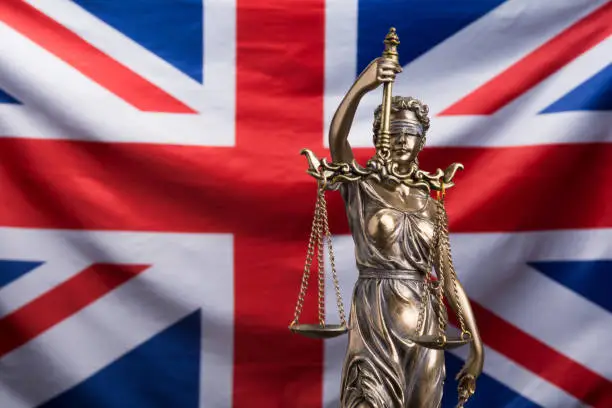UK Delays AI Regulation: What It Means for the Future of Artificial Intelligence

UK Postpones AI Law Rollout
In a significant move with global implications, the UK government has postponed its proposed regulation of Artificial Intelligence (AI) by at least one year. The long-anticipated rules—originally expected to debut in 2024—are now being reshaped into a broader AI bill for the next parliamentary session. This decision marks a shift in how the UK plans to govern one of the fastest-evolving technologies in modern history.
Back in 2023, the UK had committed to a “pro-innovation” approach to AI regulation. Rather than immediately introducing binding legislation, it planned to allow sector-specific regulators (such as the Financial Conduct Authority, the Competition and Markets Authority, and the Information Commissioner’s Office) to develop AI guidance within their own domains.
However, this approach came under increasing criticism for being too hands-off—particularly as concerns over misinformation, job displacement, and algorithmic bias began to rise.
Why the Delay?
The UK government’s decision to delay AI regulation is not a retreat, but rather a strategic recalibration. Several complex, interlinked factors have contributed to this postponement. Let’s unpack them:
1. Lack of Legislative Readiness
The original plan—to let existing regulatory bodies guide AI oversight independently—relied heavily on non-statutory principles, which meant there were no binding laws or enforcement mechanisms. While this approach was hailed for its flexibility, critics warned it created loopholes, especially for large tech companies deploying advanced AI models across sectors. Lawmakers now realize that piecemeal guidance is no longer enough.
By postponing, the government hopes to draft a comprehensive AI Bill that gives legal teeth to its AI safety principles, ensuring consistency across healthcare, finance, education, and defense.
2. Copyright and Data Ethics Concerns
One of the thorniest issues prompting the delay is the legal grey area surrounding data usage in AI training. Generative AI models—like ChatGPT, Claude, or image generators—are trained on massive datasets, often scraped from the internet. This may include:
- Books, articles, blogs under copyright
- Images, videos, and artwork by independent creators
- Music, voice samples, and more
Artists, writers, and media outlets have raised concerns that their work is being used without consent or compensation. Several lawsuits are already underway in the U.S. and EU over these practices, and the UK wants to avoid a similar backlash without first clarifying what constitutes “fair use” for AI training.
A solid legislative foundation is seen as essential to protect intellectual property rights while still encouraging AI innovation.
3. Alignment with International Standards
Another reason for the delay is the need to harmonize UK regulations with those emerging globally—particularly:
- The EU AI Act, which categorizes AI applications based on risk level and imposes strict obligations
- The U.S. Executive Order on AI, which emphasizes safety, civil rights, and national security
- China’s aggressive algorithm governance policies, especially in content moderation and surveillance
The UK doesn’t want to be isolated with a divergent approach. By waiting, it can observe global trends and adopt best practices rather than rushing ahead with a framework that may become outdated or misaligned with international trade partners.
4. Political Timing and Public Perception
With elections on the horizon and public attention on AI’s rapid evolution, the government is also managing the political optics. A rushed or flawed bill could be politically costly, especially if it’s seen as either too lax or too restrictive.
Furthermore, surveys show that a large portion of the UK public wants stronger AI oversight—but also expects AI to deliver real societal benefits. The government is treading carefully, aiming to craft a bill that will be seen as visionary, responsible, and future-proof.
Public and Expert Reaction
A recent UK-wide survey by YouGov showed that:
- 88% of the public supports stricter oversight of AI models.
- 74% worry about AI misuse in elections, deepfakes, and surveillance.
- 61% think tech companies should be more transparent about AI training data.
Experts in law and ethics have welcomed the delay, suggesting it may allow for a more nuanced, rights-focused approach. However, industry groups are split: some say it provides breathing room for innovation; others fear prolonged uncertainty.
UK vs The World: A Regulatory Race?
| Region | Status |
|---|---|
| 🇪🇺 EU | Finalized the AI Act—a strict, risk-based framework. |
| 🇺🇸 USA | Released voluntary AI safety guidelines and is drafting formal legislation. |
| 🇨🇳 China | Enforced robust AI rules on deepfakes and algorithm transparency. |
| 🇬🇧 UK | Now developing a full AI Bill for 2026. |
This delay may allow the UK to align more closely with global standards, but it also risks falling behind in setting the tone for ethical AI development.
Final Thoughts
The UK’s decision to delay AI regulation is both a pause and an opportunity. It gives policymakers more time to understand the nuances of generative AI and its societal impact—but it also raises urgent questions about safety, fairness, and accountability.
In the words of AI policy expert Martha Lane Fox:
“We need to be bold—but also careful. The UK has a chance to lead with purpose, not just speed.”
As the AI landscape continues to evolve, this is one story you’ll want to keep watching.







